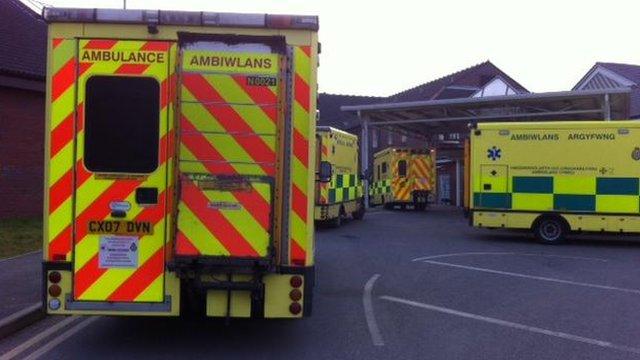New system to ease 999 ambulance pressure, says minister
- Published
Vaughan Gething says the changes offer better value and an improved service
Changes to the way non-urgent patient transport to and from hospital is commissioned will help ambulance services, Welsh ministers have said.
From April, a committee will look after the commissioning on behalf of health boards.
The Welsh Ambulance Service will still provide the transport, alongside charities such as St John Ambulance.
Ministers called the new system more "joined-up", the Conservatives said the changes should have come in earlier.
Deputy Health Minister Vaughan Gething said patients would benefit from more efficient processes.
"For a long time it's just been the responsibility of the Welsh Ambulance Service, but there's been some confusion about the way it's organised between the ambulance service and also health boards themselves," he said.
"So we've got a new design for a system, which will take away the organisation of non-emergency patient transport within the ambulance service to be commissioned by health boards acting together.
"And, importantly, it's about bringing together what the ambulance service will still do with the third [voluntary] sector, including big players like Red Cross and St John Ambulance, but also the community transport network."
'Ignored'
Ministers said the changes would be phased in, to ensure a smooth transition to the new system, without increasing health boards' £25m annual budget for non-emergency transport.
Conservative Shadow Health Minister Darren Millar said the reforms "made sense", but accused Labour ministers of not acting quickly enough.
"When suitable recommendations are made, such as in the McLelland Review [of ambulance services] two-and-a-half years ago, they should be adopted swiftly not ignored," he said.

ANALYSIS by Owain Clarke, BBC Wales health correspondent
Not everybody who goes to hospital needs to get there under a blue light and siren.
Elderly patients, cancer patients or those needing dialysis for example have routine and regular appointments arranged in advance. Not all can get to hospital under their own steam.
Until now the ambulance service has been responsible for transferring them to hospital, along with more urgent cases.
But after years of missed targets, a wide-ranging review, external two-and-a-half years ago recommended responsibility for non-emergency patients should be taken from ambulance service and given to local health boards.
That change is now under way and will see the white minibuses previously used by the ambulance service join up vehicles operated by local councils and charities like St John Ambulance and the Red Cross.
And the service will operate for longer than previously - running from 06:00 to 20:00 GMT Monday to Friday, but without extra cash.
Few believe this change alone will solve the underlying challenges faced by an ambulance service of not turning up to emergencies quickly enough.
- Published15 January 2016
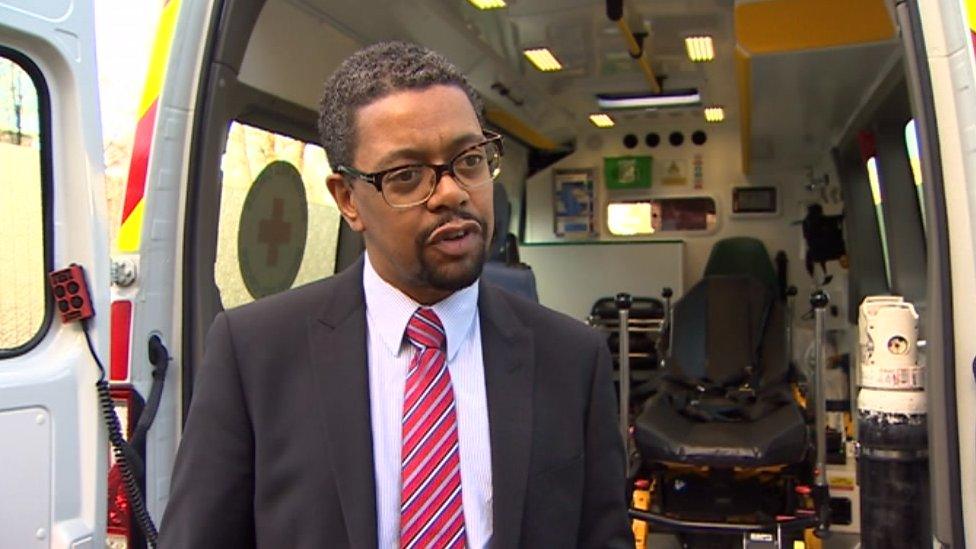
- Published13 January 2016

- Published30 December 2015
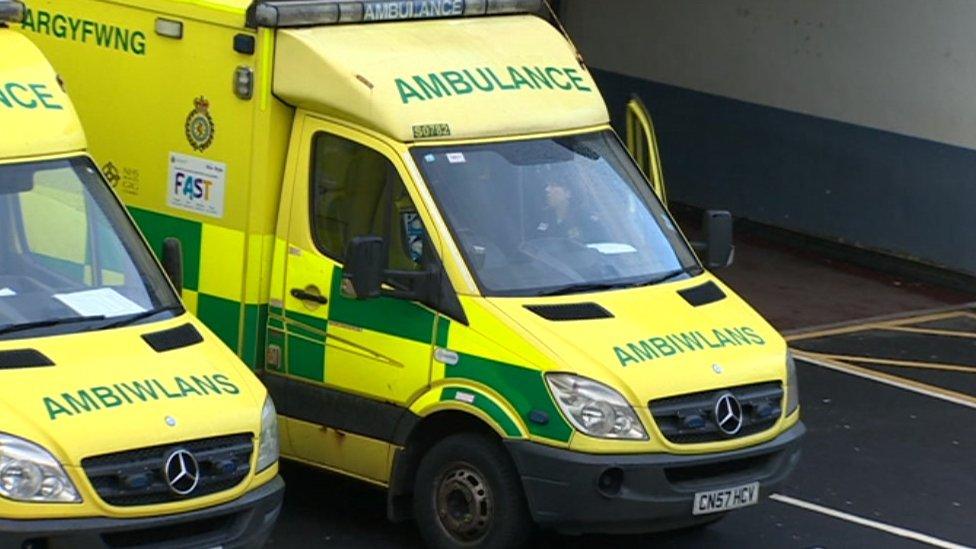
- Published18 December 2015
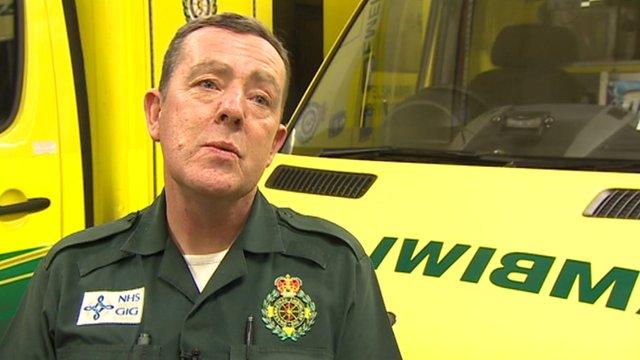
- Published27 August 2014
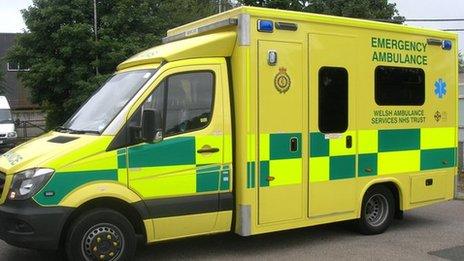
- Published25 June 2014
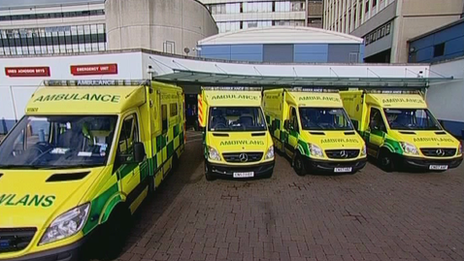
- Published30 April 2013
